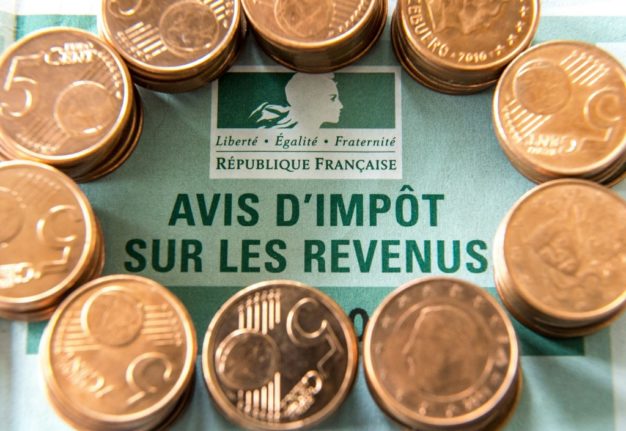The annual Déclaration des revenues – income tax declaration – involves virtually everyone in France filling out a form giving detailed information on their income to French tax authorities.
If you live in France, it’s almost certain that you will have to complete this – even if you’re a salaried employee and your tax has already been deducted at source, or if all your income comes from outside France (eg a pension received from the UK or USA).
There are only a very few exemptions to the requirement to fill out the tax declaration and they are listed here.
The deadline to complete the 2023 declaration is either late May or early June, depending on where you live – find the full calendar here.
Property owners in France are also required to fill out a one-off property tax declaration this year, with a flat fee for late declarations – more details here.
But what happens if you miss the deadline?
For most people there is a staggered system of late charges.
If you are less than 30 days late your overall tax bill can be increased by up to a maximum of 10 percent.
Once you receive a notice of late payment, the overall bill can increase by up to 20 percent, or 40 percent if you have still not filed within 30 days of receiving the later payment notice.
You will also be charged interest on late payments.
What if I don’t pay income tax in France?
If you have no taxable income in France – for example your only income is a pension from another country – then you still have to fill in the declaration.
If you file late the increases cannot be applied, since your tax bill is €0, but you can instead be liable for a late fee of €150.
What if I have exceptional circumstances?
If you know that you will not be able to file in time, you can ask the tax office for a remise gracieuse (remission) in order to avoid late fees and penalties.
You will need to outline your reasons for not being able to file in time and while there isn’t a list of accepted excuses, the reason must be exceptional circumstances such as serious illness or the death or a loved one.
If you have previously missed deadlines, the tax office will be less likely to accept your request.
The request should be made by June 29th either in person at the tax office or through the messaging system in your online tax page.
What if you don’t declare everything?
If you have not declared income which is subsequently discovered by authorities, the increase in your overall tax bill can be up to 80 percent – the maximum penalty is usually reserved for people who have deliberately tried to hide parts of their income.
We have a full guide to what you need to declare HERE, but the basic rule of thumb is that you need to declare everything, even if it is not taxable in France, eg income from a rental property in another country.
France has dual taxation agreements with countries including the UK and USA so if you have already paid tax on income in another country you won’t need to pay more tax in France – but you still need to declare it.
What about foreign bank accounts?
Another item that frequently catches out foreigners in France is overseas bank accounts.
If you have any non-French bank accounts, you need to list them on your tax declaration, even if they are dormant or only have a very small amount of money in them.
This also applies to any foreign investment schemes you have, such as life insurance policies.
The penalty for not listing accounts is between €1,500 and €10,000 and that applies for each account you fail to declare.
What if I made a mistake on my declaration?
In 2018 France formally enshrined the ‘right to make mistakes’, giving people the right to go back and correct their declarations without attracting a penalty.
So if you realise you have missed something off or added the wrong info you can either go back into your online declaration and correct it or, if you file on paper, visit your local tax office.
However the ‘right to make a mistake’ does not extend to late filing.
What if I didn’t make a declaration?
The French tax system is often confusing for foreigners, with many people wrongly assuming that if they are not liable for tax in France then they don’t need to fill in the declaration.
For people who persist in not making the declaration, even after the arrival of the notice of default, tax authorities can make an estimate, based on earnings and lifestyle, and present the bill.
However for new arrivals in France it’s likely that they will not be registered with the tax office and will therefore never receive a notice.
In this instance it’s always better to come clean – if you have made a genuine mistake and you approach the tax office (rather than waiting for them to watch up with you) you will usually be dealt with quite leniently.
How can I get help?
If you’re struggling with the system, there are ways to get help.
The tax office has an English language information page here, and a dedicated helpline for internationals on + 33 1 72 95 20 42.
You can also visit your local tax office, every town has one and you can simply turn up without appointment and ask for help (although if the office is small and your query is complicated you may need to make an appointment for the full discussion). Surprising as it may sound, employees at the tax office are generally pretty friendly and helpful and can guide you through the forms you need to fill in.
If your tax affairs are complicated and/or your French is at beginner level, it may be better to hire an accountant to ensure that everything is in order. You can find some tips on getting professional help HERE.



 Please whitelist us to continue reading.
Please whitelist us to continue reading.
Member comments